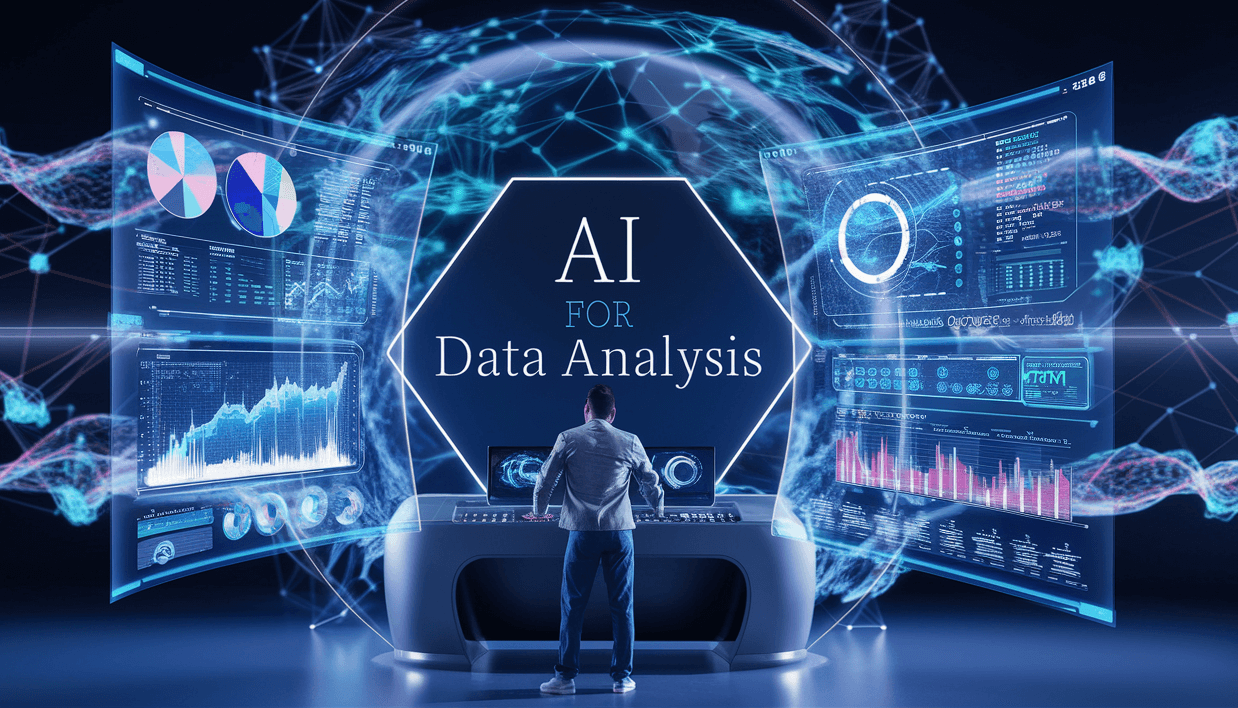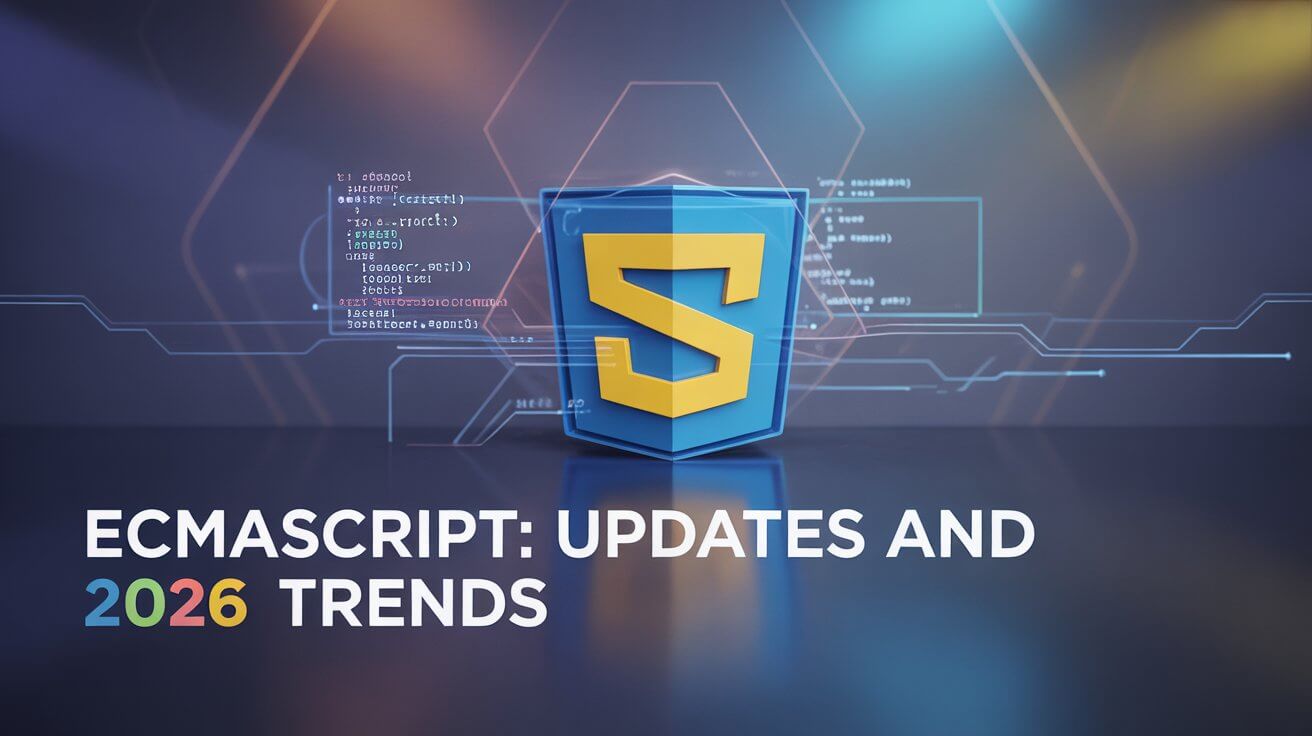The significance of data in the contemporary world is beyond measure. Definitely, we cannot assume data is only a byproduct of daily operations. But it is a wellspring of opportunities waiting to be explored. In fact, the world is generating more than 400 million terabytes a day. This is compelling businesses to rely on sophisticated AI tools to make sense of a sea of information.
AI-driven data analytic platforms are transforming industries. Subsequently, this empowers businesses to make smarter, and more accurate decisions. But does AI actually revolutionize data analysis? What are the potential benefits, threats, and limitations? Let’s explore the intricacies of using Generative AI for Data Analysts. This blog helps you to unleash the full potential of AI by understanding its impact in the data analysis industry.

Jump ahead to
What is AI Powered Data Analysis? A New Era of Insights
As we should handle enormous data daily, data harnessing is becoming a tough nut to crack. Therefore, AI-powered data analysis uses cutting-edge technologies like machine learning, deep learning, and NLP to supercharge how we explore enormous data. Yes, it’s like a supercharged assistant that can sift through massive data sets in a flash while spotting patterns, trends, and anomalies. This might slop past by the sharpest human analysts. Thus, with AI’s lightning-fast processing power, businesses can uncover insights quicker and correctly than ever before.
What AI brings to Data Analysis:
- AI goes beyond identifying past events and can predict future outcomes rendering predictive analytics for decision-makers
- Ai-driven data analysis moves beyond basic descriptive statistics to prescriptive and predictive insights.
- Machine learning algorithms can automate repetitive tasks
- AI helps data analysts with more strategic initiatives and big-picture thinking
- In marketing, they can recommend the next best actions or flag potential security threats before they arise.
Benefits of Using Generative AI for Data Analytics: More than Just Speed
While speed is the defining trait of AI in Data Analytics, it is not only the single advantage.
Let’s have a closer look
- Scalability and Efficiency– AI can process huge sets of data in real-time, extracting relevant information and providing instant feedback.
- Precision and Reduced Bias– A significant feature of AI is it can reduce human bias which results in more objective and data-driven decisions
- Predictive and Prescriptive Analytics– AI models can forecast outcomes based on historical data and suggest actions to improve future performance.
- Cost Savings– By automating labor-intensive tasks such as data cleaning, pattern detection, and anomaly recognition, Generative AI allows businesses to cut costs.
- Real-Time Insights– Al is an expert at real-time data monitoring which enables businesses to react promptly to changing circumstances.
The Dark Side: Cons of Using Generative AI in Data Analysis
While the advantages of AI in the realm of data analysis are hard to ignore, it is equally important to consider the potential downsides.
- Data Privacy and Security Concerns– Sensitive data if not properly protected, can be a target for cyber attacks. Moreover, while collecting and using personal data, ethical questions can arise.
- Lack of Transparency– AI models particularly based on deep learning can sometimes operate as “black boxes”. This can be problematic, if you are working in industries where accountability and interpretability are essential.
- Dependence on High-quality Data– AI’s effectiveness hinges on the quality of the data it analyzes. This means, analyzing poorly structured data using AI can lead to inaccurate results.
How to use AI for Data Analysis?
Using AI for Data Analysis is like upgrading your workflow to a new level of efficiency and intelligence. To start you need to identify where AI can deliver the maximum value. To epitome, you should know if we are using AI for spotting customer behavior trends, optimizing supply chains, or making a strategic decision. Once you have zeroed in on the right use case your data is top-notch. AI is only as smart as the data fed. The next step is selecting the best AI tools that fit your needs like machine learning models or deep learning frameworks. Train your models with care, refining them as they learn from fresh data over time. Moreover, the beauty of AI lies in its ability to self-improve. It constantly learns and adapts to deliver sharper insights. Yet, don’t just set it and forget it but regularly monitor your AI models to check if they are hitting the mark. Fine-tune them whenever necessary for optimal performance. When used wisely AI enhances data analysis and transforms it into a seamless and robust process that drives smarter and quicker decisions.
AI Friend or Foe for Data Analysts?
Yes, AI is taking center stage in the domain of Data Analysis. As a result, a pressing question arises: Is AI Analytics a threat to Data Analytics? On the surface, AI might replace human analysts but reality is more nuanced.
Augmentation, Not Replacement
AI is not about replacing human analysts but boosting their capabilities. It excels at analyzing patterns and trends in data but it lacks the domain expertise, creativity, and contextual understanding that humans possess. AI can manage heavy lifting such as data wrangling and model building. However, humans are necessary to interpret results, make judgment calls, and drive strategy. Hence, embracing AI aids data analysts to boost their productivity and focus on more complex tasks. Instead of being bogged down by mundane, repetitive tasks, they can turn their attention to high-level analysis and strategy formulation.
New Skills for the Future
AI does however call for a shift in skills that are required for data analysts. Certainly, they should possess traditional data analysis adeptness but in addition to that they should be proficient in AI and Machine Learning tools. This is definitely an opportunity rather than a threat. It opens to more strategic roles and high-value contributions within enterprises.
Tools of the Trade: AI Platforms For Data Analytics
The market is brimming with AI tools for Data Analysis. Here are some of the most popular AI platforms:
| AI Platform | Key Features |
| Tableau | A visual analytics platform that aids in creating interactive and shareable dashboards from any dataset. |
| Power BI | Microsoft’s powerful tool builds reports and dashboards and it offers advanced analytics and collaboration with other Microsoft products. |
| KNIME | Open-source data analytics platform that specializes in data mining, machine learning, and workflow automation. |
| Qlik Sense | Renders self-service data visualization, analytics, and dynamic reporting with AI-assisted insights |
| Polymer Search | Converts complex data into easy-to-navigate visual dashboards |
| Rapid Miner | Open source platforms for data science teams with the potential of machine learning and predictive analytics |
| IBM Watson | It has vast NLP capabilities and its use ranges from anything like data discovery to predictive analytics |
| Google Cloud AI | It provides robust machine learning and AI capabilities that offer pre-trained models and customizable solutions to businesses of all sizes. |
Conclusion
AI is undeniably reshaping the data analytics sphere. The business embraces AI for its unprecedented efficiency, accuracy, and scale. Far from being a threat, AI tools augment human creativity and intelligence. Moreover, businesses can unlock deeper insights, improve decision-making, and maintain a competitive edge in the data-centric world. Hence, mastering AI is no longer a luxury, it is a necessity for staying competitive. Whether you are just starting your AI journey or you are a seasoned data analyst upskilling in AI, especially Generative AI can unlock limitless possibilities. There are foundational courses that teach you the basics of Generative AI and advanced programs like Generative AI for Business Analytics. These training sessions can enhance your skillset and can propel your career fast forward. As we navigate this new landscape, the integration between AI and human intelligence will continue to define the future of data analytics. Undoubtedly, this will lead to groundbreaking innovations and smarter, faster decisions with businesses.
FAQS
What is AI in Data Analytics?
AI in Data Analytics refers to the use of Artificial Intelligence techniques such as machine learning, deep learning, and NLP to enhance and automate the process of analyzing large sets of data.
How does AI improve Data Analytics?
AI can improve Data Analytics by automating repetitive tasks, processing large volumes of data at high speeds, and providing predictive and prescriptive analytics.
Do I need programming skills to use AI for Data analysis?
While programming skills are not mandatory it is beneficial. However, many AI tools are designed to be user-friendly and have drag-and-drop features or in-built models.
Is AI replacing Data Analysts?
No, AI is reshaping their roles by automating routine tasks and enabling them to concentrate on strategic and high-level work.
What industries can benefit from AI in Data Analytics?
Any industry or sector that deals with large quantities of data can leverage AI for Data Analysis. This includes healthcare, retail, finance, technology, marketing, manufacturing and logistics.
How can I start learning Generative AI for Data Analytics?
You can start enrolling in foundational AI courses that impart bottom-line awareness of topics like machine learning and data processing. Once you have a grasp of basics you can pursue specialized and advanced courses like Generative AI for Data Analysts or Business Analysts.
How does AI ensure accuracy?
AI ensures accuracy through techniques like data cleaning, anomaly detection, and pattern recognition. It can identify inconsistencies in data appropriately and ensure that analysis is based on high-quality and reliable information.
What are the ethical considerations in using AI in Data Analytics?
Ethical considerations include data privacy, algorithmic bias, and transparency. These ethical questions arise especially concerning user consent and data ownership.



